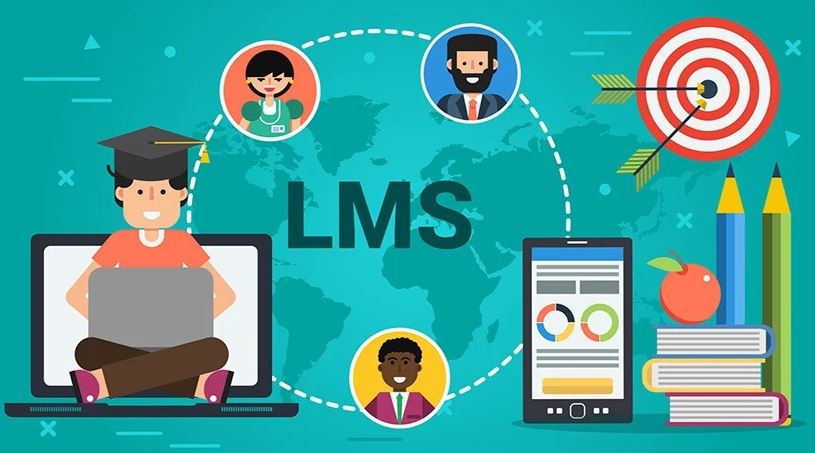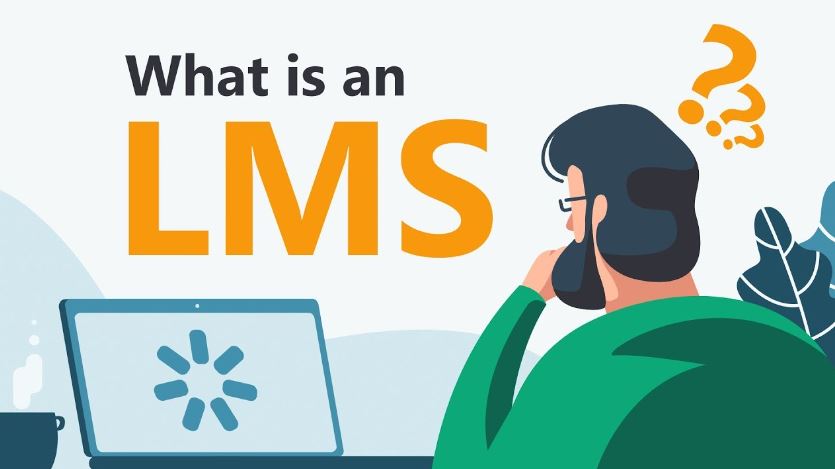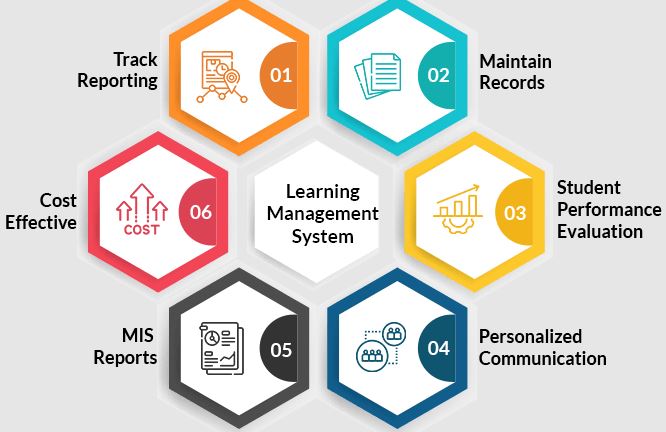A learning management system (LMS) is a software application for the administration, documentation, tracking, reporting, automation and delivery of educational courses, training programs, or learning and development programs. The learning management system concept emerged directly from e-Learning. Although the first LMS appeared in the higher education sector, the majority of the LMSs today focus on the corporate market. Learning Management Systems make up the largest segment of the learning system market. The first introduction of the LMS was in the late 1990s.
Learning management systems were designed to identify training and learning gaps, utilizing analytical data and reporting. LMSs are focused on online learning delivery but support a range of uses, acting as a platform for online content, including courses, both asynchronous based and synchronous based. An LMS may offer classroom management for instructor-led training or a flipped classroom, used in higher education, but not in the corporate space. Modern LMSs include intelligent algorithms to make automated recommendations for courses based on a user’s skill profile as well as extract meta-data from learning materials in order to make such recommendations even more accurate.
Purpose: An LMS delivers and manages all types of content, including video, courses, and documents. In the education and higher education markets, an LMS will include a variety of functionality that is similar to corporate but will have features such as rubrics, teacher and instructor facilitated learning, a discussion board, and often the use of a syllabus. A syllabus is rarely a feature in the corporate LMS, although courses may start with heading-level index to give learners an overview of topics covered.
Advantages
There are six major advantages of LMS: interoperability, accessibility, reusability, durability, maintenance ability and adaptability, which in themselves constitute the concept of LMS.
Other advantages include:
- An LMS supports content in various formats: text, video, audio, etc.
- One can access materials anytime, from everywhere, teachers can modify the content, and students can see the updated material.
- The evaluation of students is easier and fair, based on student attendance and online quizzes.
- Students and teachers can re-use the material every time they need.
- Students can learn collaboratively by setting up a School website with the LMS software and helps “Keeps organizations up-to-date with compliance regulations. If your organization must stay up-to-date with current compliance regulations, then a Learning Management System can be an invaluable tool. Compliance laws change on a regular basis, and updating a traditional course to reflect these changes can be a time-consuming chore.
Disadvantages
- Although there are many advantages of LMS, authors have identified some disadvantages of using this system.
- Implementing LMS requires a well-built technology infrastructure. Teachers have to be willing to adapt their curricula from face to face lectures to online lectures.
Echopx LMS Application
Echopx LMS
Echopx LMS is the best online learning platform for everyone. Using this you can create a course and teach your students on any topic from anywhere and anytime.
How it works
Echopx lms collaborates 2 user types primarily.
Admin and students, if you are the sole instructor of your portal.
If you allow public instructors, then it becomes 3.
Admin (you)
Student (learners)
Instructors (optional)
- Create account and browse courses
- Save favourite courses to wishlist
- Add courses to cart and purchase
- Start learning from my course page
- Messaging with course instructor
- Create courses from instructor panel
- Admin approves pending course and money deposited to site admin
- Admin pays course price commission to instructor
- Install academy lms in own server
- Setup the portal with all settings
- Create courses, sell, make money
- Requires no approval or commission
- Allow instructors to sell courses
Instructor Features
– Dedicated instructor dashboard: Instructors get a separate panel for managing courses and viewing payment status.
Course manager: Course curriculum can be organized in sections and lessons. They can be stored by drag and drop. Price can be set as fixed or discount or free.
– Instructor revenue: Instructors get paid by admin from their course selling revenue. Revenue is split upon percentage set by course portal admin
Admin Features
– Course dashboard: Admin manages all courses. Approves pending courses from instructors, sell own courses directly.
– Category Manager: Course category manager: Course categories can be organized very easily with unlimited top categories and subcategories.
– Student list: Admin can watch list of all enrolled students
– Manual course enrollment: Instead of online purchase, admin can enroll a student to a course by own choice
– Course sales report: Course selling revenue and instructor commission revenue showed separately.
– Portal setup settings: Site admin can configure everything. The instructor commission rate, external API keys, multiple language translation, SMTP configuration, theme settings, privacy policy, terms and conditions
– Instructor settings: Allow or disallow public instructors to submit course. Submitted courses by instructors require approval from admin to publish. Instructors get paid according to preset commission rate by admin.

















